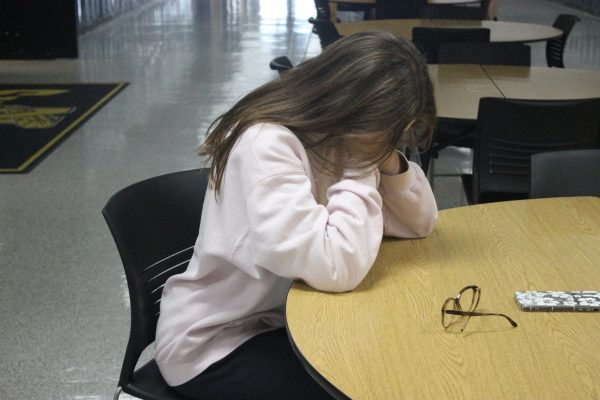Developing personal opinions essential
Blind acceptance of parents views limits growth
Today in society there is a lot of controversy between people regarding what they believe. Whether it be about religious or political views, everyone has their own thoughts on what they think is best. But what influences people to adopt the beliefs that they possess? Children grow up observing the views of their parents and often parents compel their views onto their children.
People who have grown up being forced to believe the same things about the church as their parents are more likely to stray from those beliefs, cnn.com says that more than one-third of millennials now say they are unaffiliated with any faith. This is up 10 percentage points since 2007. According to www.theatlantic.com young adults report that two of the most powerful factors that influenced their religious beliefs were the religious lives of their parents and how often they attended religious services with their parents during their childhood and teen years. Also, the British Journal of Political Science, based on data from the U.S. and U.K., found that parents who are insistent that their children adopt their political views inadvertently influence their children to abandon the belief once they become adults.
Political affiliation should be chosen based on the beliefs of the person themself and should not just be chosen based on what someone has been told is right by their parents. The Health and Lifestyles Study conducted a survey consisting of 8,636 families which looked at a child’s views in comparison to their mother and father. 53.5 percent of children misunderstood or rejected their mothers’ political party affiliation, and 54.2 did so for their fathers’.
Choosing what to believe in should have many factors, rather than just being based on the influence and opinion of your parents. Children who are allowed the freedom to figure out their own beliefs, whether they be religious or political, are more likely to agree with their parents and the views they have grown up around and know so well.
Discussing politics with your parents is not something that should be avoided when you do not shared the same beliefs. According to www.vox.com the main reason that children do not agree with the same views as their parents is that about only two in three children are able to understand their parents’ party identification. Also 42 percent of parents were unable to comprehend the beliefs of their children. The relationship with our parents can affect where our views end up and being able to talk about what we believe with each other is a big factor.

Caroline is a senior and has been part of The Newtonian newspaper staff for three years. For the past two years she has served as a reporter and will be...










